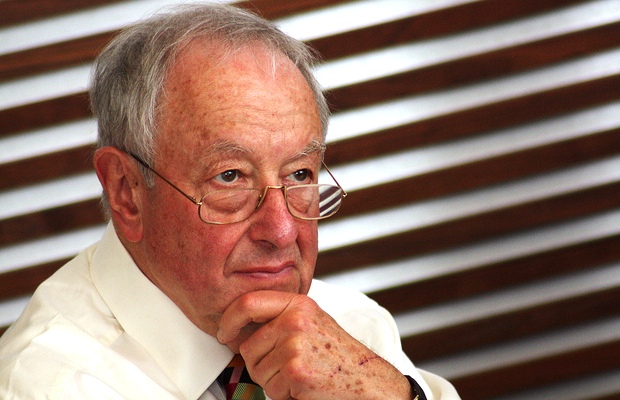13 Jun 2013 | Media Freedom, United Kingdom
Lord Lester of Herne Hill, one of the UK’s most celebrated human rights lawyers, has slammed the government’s proposed Royal Charter on press regulation, saying he doubted it would “pass muster” under the Human Rights Act.
(more…)
25 Apr 2013 | Uncategorized
The continuing debate over press regulation in the UK has raised a question over what constitutes “news”, “news-related material”, and even a “blog”.
No one’s quite been able to nail down these terms (though Lord McNally did offer the notion that you know a blog “when you see it” during a parliamentary debate earlier this week).
Caught up in this conundrum are the so-called “hyperlocals” – neighbourhood websites providing a mix of news and comment for particular locales.
My own er, local hyperlocal, the Kentish Towner, is a great example of the genre, providing a mix of lifestyle, lists and occasional news. South of the Thames, the slightly more newsy Brixton Blog does a similar job (interestingly, both have launched print editions).
It is not just status under regulation that is of interest here: there is also the question of whether hyperlocals get to enjoy the same access to local politics and administration that newspapers do.
This issue was brought to light recently in the case of blogger Jacqui Thompson. The libel case itself was interesting, but more interesting was the question raised, after Thompson was removed from the chamber by police for refusing to stop filming, as to whether she had the right to film in the council chamber.
This was not the first instance of this controversy. In 2009, Jersey politicians proposed that “members of the public will not be permitted to take any form of footage”, adding that “Only those people working professionally for a recognised commercial media organisation who can identify themselves as such will be permitted to take footage of proceedings held in public”. The proposal was eventually dropped.
These moves seem to be counter to recent trends such as the increasing permission to allow live tweeting from court proceedings both by members of the press and the public.
Is there an easy solution? Livestreaming of all local government proceedings might seem to be the way forward, but some might argue that this would hand over control over footage to the authorities.
As traditional media models collapse, and more and more people feel the right, even the necessity, to record every detail of public and even private life, this is a question that will reappear again and again.
Padraig Reidy is Senior Writer at Index on Censorship. @mePadraigReidy
12 Apr 2013 | Uncategorized
The Department of Culture Media and Sport this week held a “mini-consultation” with the aim of soothing fears that bloggers may find themselves caught in the net of the proposed post-Leveson press regulator.
The fears stem from the initial drafting of the scope of the new regulator, which suggested that any “relevant publisher” of “news-related” material would be expected to join the regulator, and could face the “stick” of exemplary damages if they did not have a “reasonable” excuse for not being part of the regulatory system. These definitions applies to vast swathes of the web, as well as the traditional newspaper industry.
For many, the realisation dawned that the new regulator would not simply cover the “bad guys” of the Murdoch papers and the Mail; rather, in an age when anyone can be a journalist, so too can anyone with an online presence be regarded as a publisher of “news-related material”.
The task of defining who’s in and who’s out was brought into focus when leading site Mumsnet asked the DCMS whether it would be seen as a relevant publisher of news-related material. “We don’t know”, came the reply, reflecting the ill-thought nature of the whole process. Shortly afterwards, Mumsnet were told they would “probably not” be covered, but that ultimately, it would be for the courts to decide.
The DCMS then set out to develop a list of who would not be covered: Wine magazine Decanter was mentioned as not being a news publisher. This, frankly, is an insult to Decanter, which publishes wine news for people who are interested in wine.
Then we were told individual bloggers would not be covered, but that blogs that had multiple writers, or an editorial process, might. So that’s group blogs regulated, while, for example, the extremely influential and widely-read Jack of Kent blog, run by a single person, lawyer and journalist David Allen Green, is not.
“Small-scale” blogs are now, we are told, to be protected, but how does one define this? On what scale do we measure “small”?
Confusing? Yes. Because the whole thing is confused. The entire proposal is flawed, which is why Index had no wish to take part in this week’s consultation: we believe the whole situation to be irretrievable. The principal Index has consistently held — that only non-statute based regulation can guarantee a free press — has only been reinforced by the current fiasco.
Politicians and campaigners are desperately trying to keep this ill-conceived “press reform” momentum afloat, having seen it dragged out to sea on a self-generated wave of something-must-be-donery. These blogger consultations — the latest attempts to make sense of a nonsensical law — are the actions of a government, and a movement, not waving but drowning.
Padraig Reidy is senior writer at Index on Censorship. @mePadraigReidy


